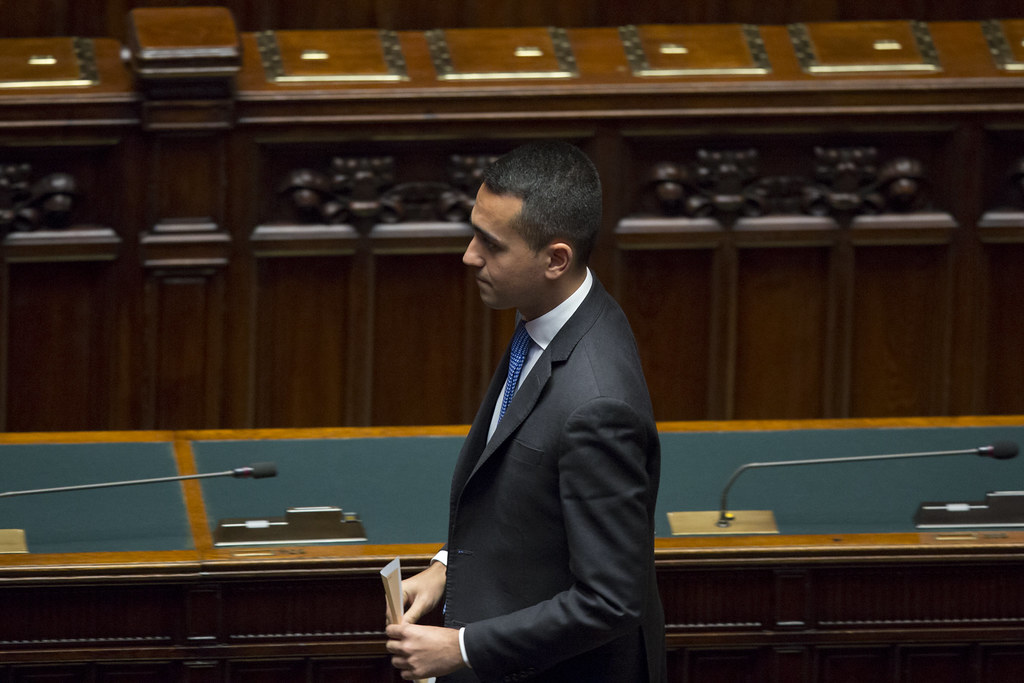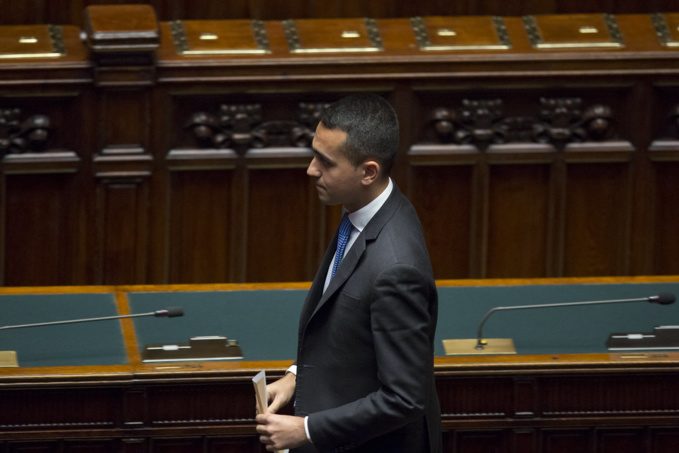The resignation of Luigi Di Maio from the political leadership of the Five Stars was expected. He has been criticized a lot lately, and, as La Repubblica wrote, he has lost the trust of the founder and guarantor of the movement, Beppe Grillo. For several months, the movement has been in an ideological and structural crisis, accompanied by a loss of voters and active participants in the movement registered on its Internet platform. Recently, parliamentarians have been leaving it en masse - 32 people moved from the five-star faction to the so-called mixed group.
The main cause of dissatisfaction is the almost complete loss of the identity by the movement, conceived as a non-conformist and anti-systemic.
The Five Star crisis is directly linked to the name of Luigi Di Maio, to whom Beppe Grillo handed over political leadership at the peak of the popularity of the movement in September 2017. Six months later, in the parliamentary elections, the movement received 32% of the vote. In June 2018, it formed a coalition government with the right-wing populist Northern League. And this walk in power cost them dearly: for the year, the Five Stars lost half the electorate, gaining only 17% in the May elections to the European Parliament.
But the main question is the future of the government.
Italian Prime Minister Giuseppe Conte is still confident that a change in the political leadership of the movement will not affect the stability of the cabinet, in which Di Maio retained the post of Minister of Foreign Affairs.
But first peple have to wait for the results of the gubernatorial elections in Emilia-Romagna, in which the candidate from the League and the candidate from the Democratic Party are fighting. They will take place next week. Italian experts do not exclude the possibility that in the event the Democrats lose, a combination of circumstances unfavorable for the stability of the government, to which they include the resignation of Luigi Di Maio, could result in a government crisis.
source: www.repubblica.it
The main cause of dissatisfaction is the almost complete loss of the identity by the movement, conceived as a non-conformist and anti-systemic.
The Five Star crisis is directly linked to the name of Luigi Di Maio, to whom Beppe Grillo handed over political leadership at the peak of the popularity of the movement in September 2017. Six months later, in the parliamentary elections, the movement received 32% of the vote. In June 2018, it formed a coalition government with the right-wing populist Northern League. And this walk in power cost them dearly: for the year, the Five Stars lost half the electorate, gaining only 17% in the May elections to the European Parliament.
But the main question is the future of the government.
Italian Prime Minister Giuseppe Conte is still confident that a change in the political leadership of the movement will not affect the stability of the cabinet, in which Di Maio retained the post of Minister of Foreign Affairs.
But first peple have to wait for the results of the gubernatorial elections in Emilia-Romagna, in which the candidate from the League and the candidate from the Democratic Party are fighting. They will take place next week. Italian experts do not exclude the possibility that in the event the Democrats lose, a combination of circumstances unfavorable for the stability of the government, to which they include the resignation of Luigi Di Maio, could result in a government crisis.
source: www.repubblica.it



















